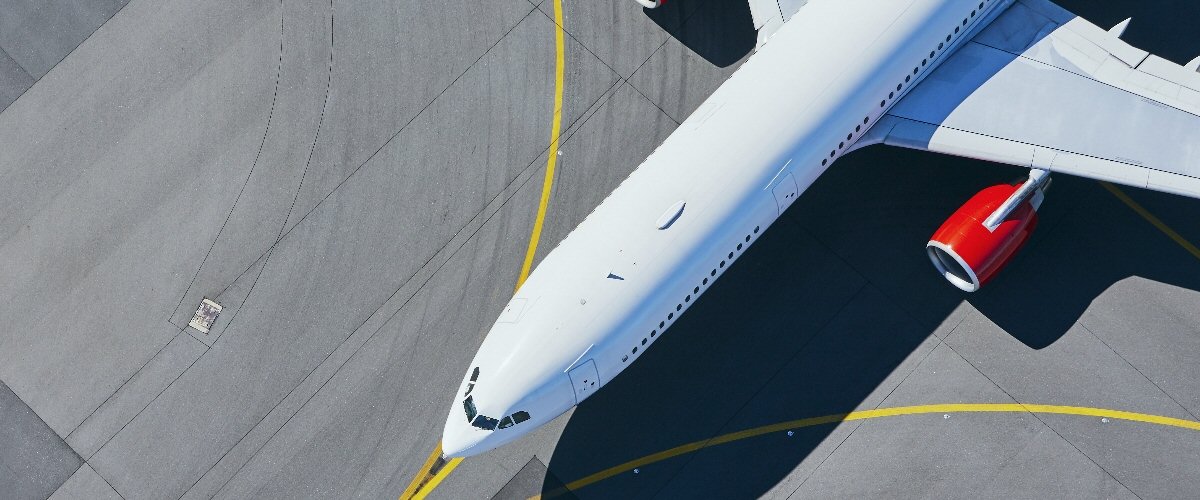Edition 11 | 14th June 2024 Download PDF
.png)
Following another disappointing delivery month for Boeing, I have taken the opportunity to re-evaluate the full-year delivery expectations we anticipate from both major OEMs.
So far this year, Boeing has delivered only ~62% of the 737s that they had delivered by the end of May 2023. Whereas they were producing ~32.6 737s/month last year by the end of May, so far it has barely made it over 20 in 2024. Even if I assumed that they manage to recover to a decent monthly average for the remainder of the year matching that for the first half of 2023, they will only manage to produce 330 units. That is around 30% lower than expectations we had back in December last year. It could well be worse if the current rate is maintained for longer. Whilst we have seen sustained delivery rates well into the mid-50s for the 737, the current situation dictates that any serious ramp-up is out of the question until the assessment of the situation is complete. Coupled with the fact that we also expect the 787 deliveries to drop from our initial expectation by a similar percentage, the total commercial aircraft output from Boeing looks to be at least 15% down overall by year-end.
At Airbus, the situation is of course, markedly better. The A220 is ahead of the May 2023 numbers (21 v 19), the A320neo is marginally ahead by 1 (215 v 214), the A330neo is at the same level (10), whilst the A350 is clear by 3 (17 v 14). That being said, I also had to trim the overall expectation for Airbus slightly based on expected ramp-ups and the August lull. Once I take both OEMs into full account, the Airbus rise is countered by the Boeing slump and sadly that would mean that the overall combined output closely matches that of last year, with the added problem that we expect fewer 777Fs to deliver as well. Based on our assumptions of future ramp-up scenarios, it would mean that we won’t reach growth levels beyond 2018 until the end of 2026 and full ramp-up until early 2028!
Off the back of that, I have also slightly trimmed our expectations for new orders placed this year, although more on that in a few weeks when I release our Farnborough Air Show forecast. The table below illustrates our latest full-year 2024 delivery forecast and the starting point as released back in December 2023.
|
|
Jan-24 |
Jun-24 |
|
A220 |
72 |
76 |
|
A320 |
642 |
620 |
|
A330 |
36 |
30 |
|
A350 |
72 |
74 |
|
737 |
480 |
330 |
|
777F |
26 |
20 |
|
787 |
96 |
60 |
|
767F |
14 |
14 |
Source: IBA Insight and Intelligence

Source: IBA Insight
It is not too often that Africa is at the forefront of global aviation news. Representing 17% of the global population but only 4% of operators’ fleets, it is significantly underdeveloped. Unfortunately, the region’s industry reputation is stained by government and economic instability, which deters much investment. However, more often than not, it is not actually the airline’s fault!
Such an example is the Nigerian government releasing the $850m in held-up revenue of foreign airlines this month. With airlines such as Emirates now declaring that they will reestablish routes into the country, it prompts the question of whether African aviation is reforming.
Nigeria had been the worst offender globally (the payment reduced the global amount by 28%), with their held-up funds now down to $19m. Unfortunately for the airlines, they do not have control over this, and it is the government protecting their currency that causes these moves. If the ‘balance of payments’ is too one-sided with people wishing to sell the Nigerian Naira, it will depreciate. Ironically this is the opposite phenomenon of the ‘Dutch Disease’ that plagued their economy for decades prior, in which a resource export-dominated economy (oil) pulls up the currency and smothers other industries. However, the new Nigerian president Bola Ahmed Tinubu is willing to risk the currency to open the economy.
With the move, international airlines will feel more confident repatriating revenues from the country and likely put in more routes, boosting the economy. Likewise, and arguably more importantly, there should be more foreign direct investment in aviation. Most ‘successful’ African airlines are full-service carriers, supported/owned by their government. There are remarkably fewer low-cost airlines on the continent, despite their model having great success in developing markets, where consumers fall into their pricing sooner. The challenge here is that the low-cost model better suits short-haul, and freedoms of the air between African states are still tremendously restrictive. It needs to be a group effort!
In terms of funding and investment, there is also the question of cost. One of the repeating conversation points from IBA’s attendance at the recent Africa Aviation Summit in Johannesburg was the difficulty in getting funding. Global airline funding has reportedly dropped from around $300bn in 2019 to a third of that figure in 2023. Airlines being cash-rich will play a part, but also the base rates being elevated globally have made costs prohibitive for many. This is especially the case for many African carriers with poor financial track records, and therefore high credit premiums. IATA forecast a return on equity of 5.7% for 2024, but a Weighted Average Cost of Capital (WACC) of 9.0%.
Fortunately, in this funding environment, we have seen countries investing in their own airlines. In this week alone, Royal Air Maroc received $354m from their government, whilst EgyptAir received $421m from theirs. If Nigeria opening up their industry has the positive outcome IBA predicts, the other African nations involved may also release their blocked funds, boosting the region. If a carrier can then facilitate cooperation between neighbouring aviation authorities, there is tremendous upside.
More insights and analysis on this region can be found in IBA’s African Market Update Report for 2024, available to purchase on request.

ESG Analyst
Formula E, the lesser-known counterpart to Formula 1 for electric cars, has achieved a groundbreaking milestone in utilising Sustainable Aviation Fuel (SAF) for air transport. For Round 12 of the sport’s championship season, teams and championship equipment were transported from Berlin to Shanghai using DHL's GoGreen Plus service, which is designed to help businesses reduce the carbon emissions associated with their shipments.
As businesses increasingly need to report their Scope 3 emissions, a commitment many have already undertaken, IBA urges more sports-related organisations to follow Formula E's example. Additionally, while these organisations are making progress in environmental consciousness, they should encourage fans attending events to
consider eco-friendly transportation options.
Given that Formula E successfully reduced freight emissions by 73% using SAF in 2023, IBA is keen to see the emission reductions achieved this year.
Want more aviation ESG news from the last month?
Our regular update looks at the key trends and market indicators using data and analytics provided by IBA Insight.
 Recovery by World Region.png)



Introducing IBA Insight, IBA NetZero and IBA Airlines – aviation's one-stop shop for intelligence. You need quick, intuitive access to the most accurate commercial aviation data. Our products are designed to provide you with seamless and simple analysis, prompting better asset decisions, enhanced risk management, and a full understanding of aviation decarbonisation strategies.

With our large team of award-winning ISTAT-qualified appraisers and over 35+ years' proprietary data, IBA is a leading player in the valuations market. Working globally, we offer independent, impartial opinion and advice on the value of a range of asset types including aircraft, engines, helicopters, freighters and air cargo, landing slots and spares. Always striving to exceed clients' expectations, IBA's objective judgement supports the required security needed for loans, asset repossession, commercial development and remarketing.

IBA works with leading aircraft and engine leasing companies from around the world. Our depth of industry knowledge informs our expert advice so we can support clients through the investment cycle, inspiring confidence at every stage of their journey. From valuations, fleet selection and portfolio development to redelivery and remarketing at lease end, we accompany clients through every risk assessment and asset management activity during the life of the lease.

Aviation investment can be an intricate affair and, with significant financial stakes involved, leaving things to chance is not an option. Whether you are investing for the first time or an established player in the market, IBA can help you cut through the complexities of the asset class to better understand investment opportunities. We can work with you to support portfolio development, diversification and to meet strategic needs.

For over 30 years IBA has worked with global and regional airlines providing valuation and advisory services, aviation data intelligence and aircraft and engine redelivery support. Working collaboratively on a variety of aviation projects spanning the world, we fulfil clients' additional resource requirements and provide project management support wherever and whenever needed.

We take a resourceful approach to litigation support and dispute resolution, identifying thoughtful solutions that are tailored to our clients' legal strategy. Our access to over 30 years of proprietary aviation data, regular involvement in strategic M&A and aircraft management expertise affords us regular access to the typical areas of contention between parties. IBA assists clients directly or via their legal teams across many aspects ranging from insurance related settlement for aircraft damage or loss, to disputes between lessors and lessees - often at redelivery.